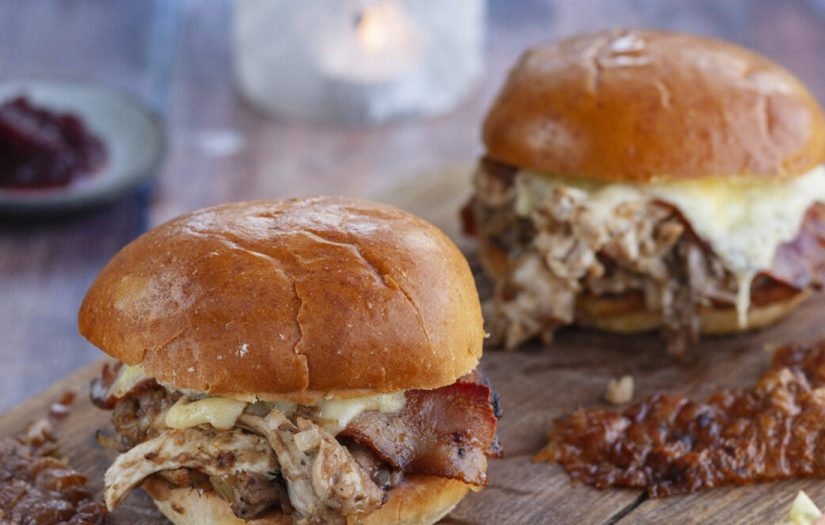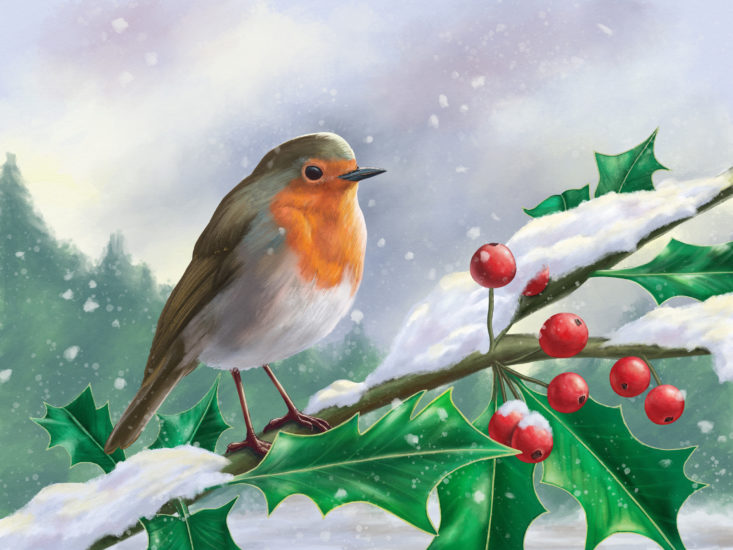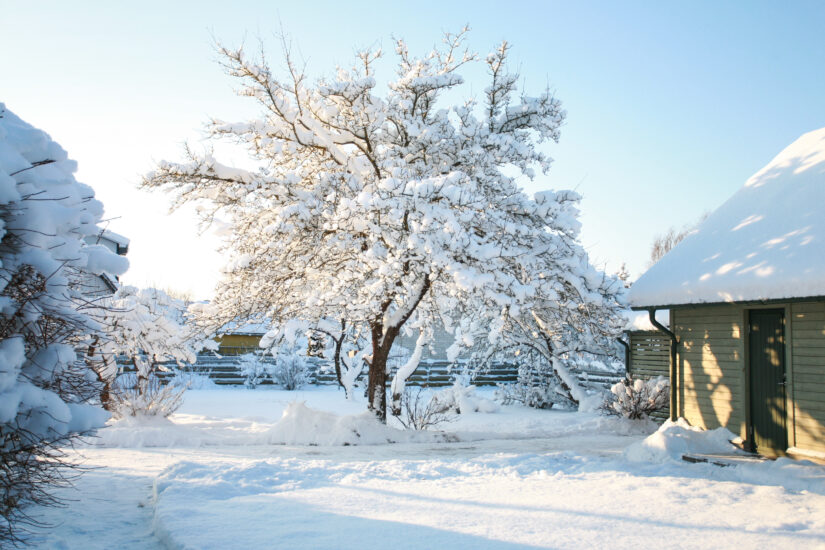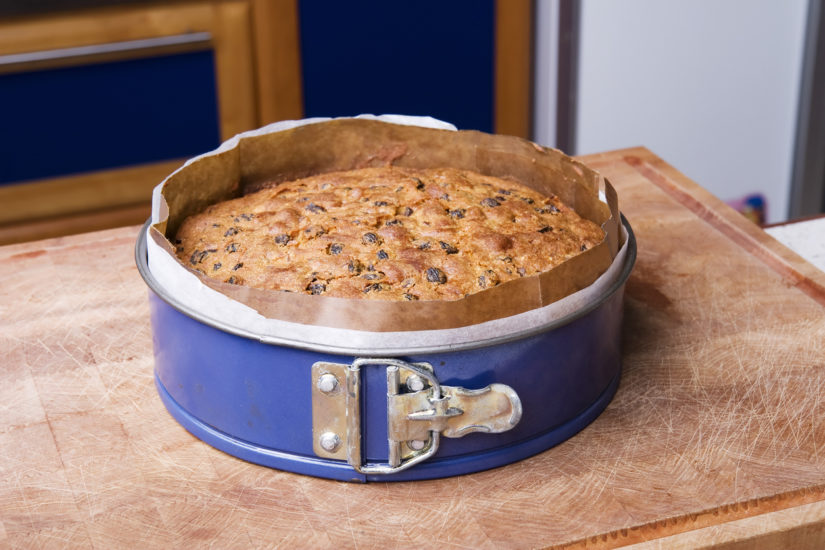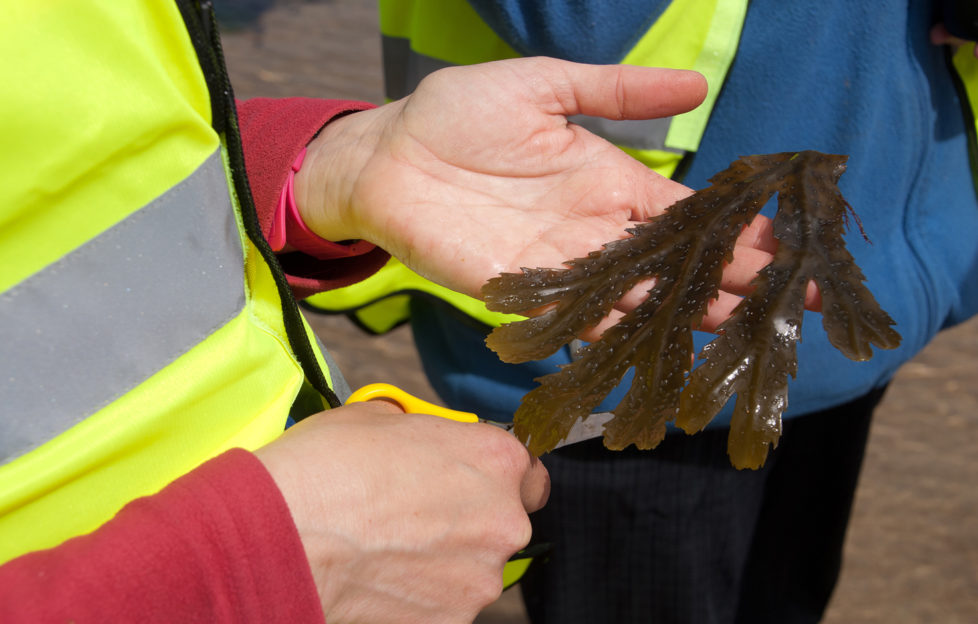
Have you ever eaten seaweed?
With National Marine Week here once again, we thought we’d revisit the time our travel writer, Willie Shand, did just that . . . with very little encouragement!
I’ve come to Elie Bay in the East Neuk of Fife this morning.
Not to laze on the beach or to build sandcastles, but to explore the somewhat forgotten world of seaweeds (“Nature’s Marine Allotment”, as Fiona Houston of Edinburgh-based company Mara Seaweed describes it).
Fiona is the co-founder of Mara, a company that is certainly making a name for itself in seaweed. And, indeed, in the kitchen.
“Mara” is Gaelic for “of the sea”.
OK, seeing it in the raw, a mass of slippery greens and browns . . . it may not look all that appetising. But before you screw your nose up at the thought of eating it, you might be surprised to learn that this ancient “superfood” is now appearing on the menus of some of the world’s top restaurants.
I must admit I didn’t know what to expect when Mara invited me to the beach today. All I knew was that I’d to bring a pair of wellies.
Arriving at Elie
Elie is just over an hour’s drive from Edinburgh. It is steeped in history. In 1054 the Earl MacDuff escaped across the Forth from these shores, pursued by the murderous Macbeth.
As we make our way down from the Terrace and along Elie’s original main street, South Street, we pass many fine old houses, some dating back to the 1500s.
Elie Bay, with its sandy beach and healthy climate, has been attracting holidaymakers for generations. At low tide, a great expanse of golden sand stretches far out to the shoreline. This is the perfect time to forage for seaweed, out among the rocks that only become exposed at sub-tide.
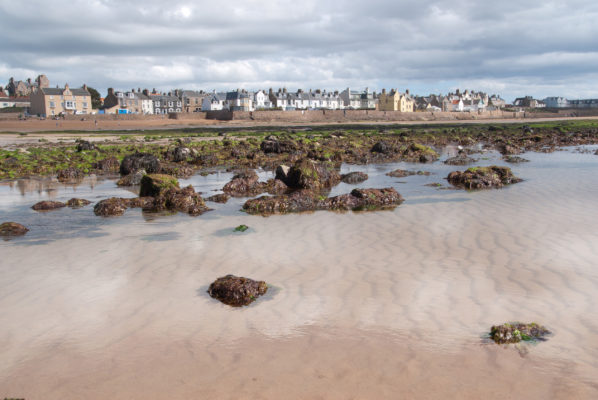
Anyone can forage seaweed for their own use. But, as Fiona explains, it’s a bit more complicated when you start to harvest it commercially.
For a start, you need to find out who actually owns the beach – a private individual, local authority or the Crown.
Founded in 2011, Mara holds the Crown Licence to harvest around the East Neuk of Fife. As we walk over the sands, I ask Fiona where the idea came from to establish her company.
“Look at that seaweed – why don’t you eat it?”
The seed was sown, she tells me, when a Chinese friend she was walking with noticed all the seaweed on the shore and commented, “Look at all that seaweed – why don’t you eat it?”
“After my friend and I had spent some time foraging and gathering information for our book, our research really opened our eyes to the potential of this ancient and forgotten ‘superfood’.
“Seaweed was probably forgotten as a food because of its associations of being a last resort in times of desperation. Not any more.”
When Mara launched its products, it was in Harrods, Booths and Harvey Nichols. It then went on to secure a contract to supply its shake-on seaweed flake seasonings and healthy salts Marks to And Spencer.
Leading our little group is Seaweed Harvest Manager Rory MacPhee and Beach Supervisor/Environmental Scientist Tansy Torkington. Like Fiona, they have a great passion for seaweed.
What Rory doesn’t know about seaweed is probably not worth knowing.
Some of the best in the world
He’s in little doubt that the combination of cold, clean waters and abundance of light make Scottish seaweed some of the best in the world and, having played such an important part in our past, that it’s one of the true flavours of Scotland.
There are dozens of varieties of seaweed all within just a stone’s throw – serrated wrack, gutweed, carrageen, sugar kelp, sea lettuce, oarweed.
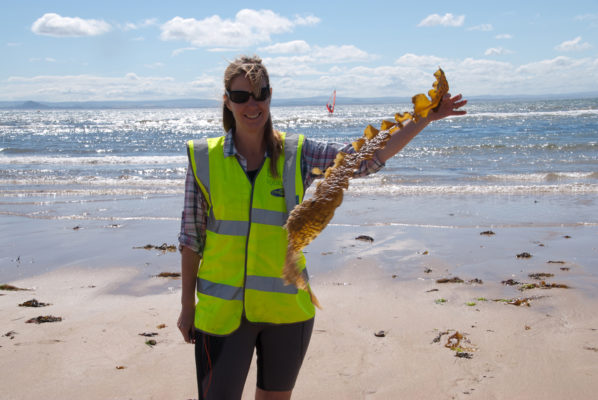
Unlike the danger inherent in foraging for mushrooms, Rory assures me there are no poisonous seaweeds – at least, not anywhere close to shore.
Just look for “excellent” water conditions in the Good Beach Guide, don’t forage after heavy rains and avoid places near any possible contamination or pollution.
As you’d expect, very rigid protocols are followed both on the beach and in the lab. Once cut, the seaweed is sealed in containers, and it does not get opened again until in the lab clean room.
“Anyone can cut and sell it,” Rory says, “but only a few of us know the secret of drying it.”
Accompanying us on our exploration is Hoolie, Mara’s Labrador mascot. He loves being photographed!
Rory bends down and snips a piece of carrageen, being careful not to remove the holdfast – the weed’s fixing to the rock. It’s left so that the plant can regrow.
Tremendous health benefits
There are endless ways to use seaweed in the kitchen and all offering tremendous health benefits.
Dulse is just vegetarian bacon – salty and sweet when dried. Pound for pound, it has even more protein than beef. Sugar kelp makes a good stock called dashi. Tansy adds milled seaweed to most things she cooks.
“It’s great in flapjacks,” she says.
Sea lettuce is high in vitamin C and makes a really good salad. Kombu, she tells me, goes well with tomato-based dishes and soups, really helping to lift the taste.
It’s high in iodine; something that nearly two thirds of UK women don’t have enough of. Just take it in moderation. Try mixing dried kombu in butter to cook fish – you might even find this on a Michelin-star restaurant menu.
Even if it doesn’t look all that appealing, that mass of slippery stuff clinging to the rocks can give us all the vitamins and minerals we need. It can improve our health, help us to sleep, bathe us and even feed us.
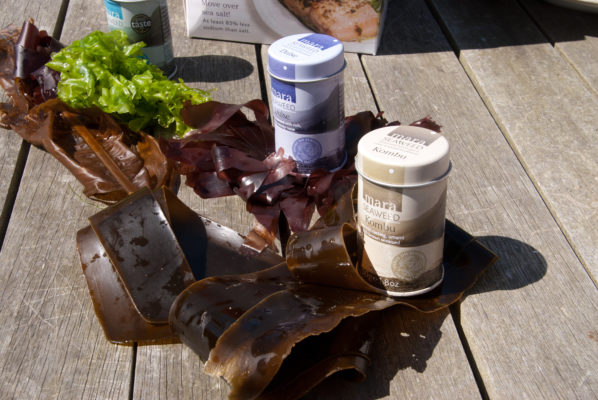
And, with Mara’s flaked dulse, kombu and blended shony, we can all give it a try.
A morning on the beach fairly builds up an appetite. Back at the house, Mara has a barbecue laid on to demonstrate how this “poor man’s food” can really enhance our everyday cooking.
After smoked mackerel sprinkled with dulse, followed by sporophylls of alaria and dulse umami burgers, I for one need no more persuasion!
National Marine Week
National Marine Week is The Wildlife Trusts’ nationwide celebration of all things marine.
Despite the name, it lasts 15 fun-filled days to allow for the variation in tide times around the country.
During this time, Wildlife Trusts all around the UK put on a jam-packed programme of events and activities . . . including inland!
Enjoyed this article? Click here for more of Willie’s adventures.

